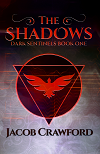So you definitely want to be a writer – I mean, what’s not to love? You work from anywhere, be it your bed or a cafe in Florence. You set your own hours, so you can work for sixteen hours on one day and not at all the next. You can do all your writing at eleven o’clock at night, or get it all out of the way before eight in the morning and spend the rest of the day relaxing. Basically, with writing, you can kind of do whatever you want, whenever you want.
Now in reality, you know it’s not that simple, but man is there ever more freedom than a traditional job. It’s no surprise that you’re here, knowing that you desperately want to write.
But knowing that you want to write is only the first step. The next part is crucial, too: what do you want to write? Are you a novelist at heart, or an in-depth journalist? Do you want to write romance novels or science fiction? Or perhaps you enjoy writing short stories, or how-to articles.
You probably already have a good idea of what you want to write, and if there’s more than one genre you want to work with, then good for you! It just broadens your horizons.
If you have no idea, then just think of something that interests you, and excites you, something you could talk about all day long. I don’t care how random and ridiculous it might sound, whatever it is, I promise you there’s an eager audience out there who’s dying to read what you have to write.
For now, pick one – the one you want to work on more than anything – and focus on that. It’s best to start simply and work on one thing for now and get that up and running before you tackle your other passions. For now, keep it simple.
1. Find out who and what are the current best sellers?
Find out what books are topping the charts at the moment – this will help you get a feel for what the market’s after at the moment. Don’t let this rule your writing style, just be aware of what’s out there. I don’t believe in copying, but I do believe in drawing inspiration from others, and if you can find something that really, genuinely sparks your interest, take that to heart and make note of it.
Also, if applicable, look for any “classics” in your genre – they don’t have to be a hundred years old, but, for instance, if you’re an aspiring sci-fi writer, Ender’s Game and anything by Jules Verne or H.G. Wells should be on your list, as well as whatever’s in today. Read the most popular authors and books in your genre of choice to make sure you’re familiar with themes, styles, and story lines. This will also help you make sure you don’t accidentally write a story that’s startlingly similar to someone else’s. All stories will have similarities to other stories, of course, but this way you can ensure that yours doesn’t have any blatant resemblances to other popular stories out there.
2. Learn how to write for your field.
If you want to write non-fiction books on how to grow tomatoes, then you should check out some books on how to write non-fiction. This will help you get your formatting, language, and style in line with the genre you want to break into. Try to read one how-to book a week – if you read three, then you’re ahead of the game. I like to take notes and put those little flags so I can easily remember key points. You’d be surprised how many insider tips you can learn from just one For Dummies book from your field – it’s a worthwhile investment and, if you don’t have the money, get one from the library and take detailed notes.
3. Take a class if you can.
Ttaking a class or seminar with a writing professional is a good way to not only get great advice and pointers, but network and socialize with other writers. You can even take webinars and online courses for considerably less, sometimes free! I’ll post any links I come across, but a simple search should turn up countless blogs, forums, ebooks, and other useful resources for the beginning writer to use. Even if you get one good tip from a blog or class, it’s worth your time.
4. Join groups related to your filed.
You probably have some idea of where you want to go with this writing career, whether it’s touring the country to talk about your best seller, writing for an elite newspaper or magazine, or just contributing part-time to a favorite website – each of these are valid and have their own crowd. Either way, there’s a club out there that you could be part of. MeetUp.com is a great resource for finding other kindred spirits, as well as simple Google searches.
If in-person gatherings aren’t realistic for you, or if you’d just prefer to stay home, there are plenty of online groups that will offer the same support and resources. These people might already have a foot in the door, or might know someone (who knows someone) who might have a writing position available. Maybe you’ll just get some moral support, or great ideas for a piece. Either way, it’s worth checking out!
5. Look for publications that might be interested in you.
Do you have a favorite website that publishes articles in your field? Or maybe there’s a small local publication that you’d like to be a part of. Write a compelling article or two, then submit them to these publications with a concise and articulate cover letter. If you get rejected, then just find another publication and try again. The beauty of the Internet is that you can type your keyword into just about any search engine and get great results on websites that routinely cover your topic. Apply, apply, apply, and when you finally get a bite, deliver so that they know you’re worth their time and money.
So now that I’ve rambled on for a bit, back to my initial question: What do you want to write, and what are you going to do about it?
Figure that out, hold onto it, act on it, and the rest will follow.
Happy writing!




